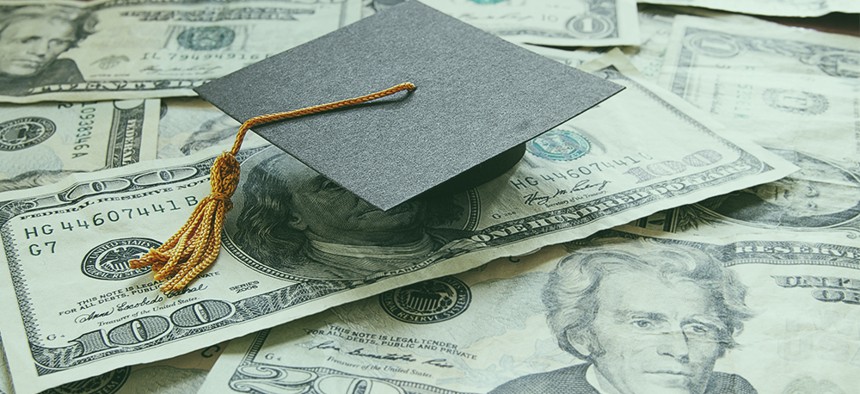DACA youth need help
Nearly all DACA youth pay taxes. Yet they are still not covered for certain civic benefits like post-high school education.

Mortarboard and $20 bills Shutterstock
Throughout the United States, Deferred Action for Childhood Arrival students are not eligible for state or federal financial aid of any kind to help them cover college expenses. That makes it very difficult to complete a degree.
Many DACA students pay for college on their own dime. Many of them can pay lower in-state tuition if they attend college in their home state. However, a recent decision by the Arizona State Supreme Court makes DACA youth who live in the state pay out-of-state tuition prices. More than ten other states have passed similar laws. Thankfully, New York has not, but it is painfully clear that there are people who wish to make it even harder for undocumented immigrants and DACA youth to get to college.
Nearly all DACA youth pay taxes. They are given temporary social security numbers and required by law to file their income taxes. Yet they are still not covered for certain civic benefits like post-high school education.
So how do DACA youth and undocumented immigrants make it through higher education while paying out of pocket? The direct answer is most do not. According to TheDream.US, only 5 to 10 percent can afford college.
There are many great scholarships for undocumented youth wanting to further their education. TheDream.US awards some 3,000 scholarships to those who are either high school or community college graduates, or students who live in states where they cannot access in-state tuition. Golden Door and the Jack Kent Cooke Foundation are two others. However, these scholarships are extremely competitive and not sufficient to meet the needs of the more than one million Dreamers estimated to currently be living in America.
Nearly four years ago, I started working at Grace Outreach, a nonprofit in the South Bronx that works with women who want to earn their high school equivalency degrees, go to college, and get jobs. I have met hundreds of smart, talented and motivated women who want to improve their lives through education – but most of them are DACA youth and undocumented women who came to the U.S. as children. As such, many of them are ineligible for financial aid.
I started looking for ways to help. We started by applying for all of the scholarships for undocumented youth. None of our students received a scholarship, in part due to the incredibly competitive nature of these applications.
In 2015, I started talking to a close friend, Margie Lempert, about my students’ dilemma. Lempert runs a women’s powerlifting event called the Iron Maidens Raw Open every year at a gym in Brooklyn. She wanted to add a fundraising component to this incredible day showcasing women's strength. We thought that the grit and determination that it took for undocumented women to get to college matched the strength and tenacity that women powerlifters demonstrate. Together we created the Stay Strong Scholarship to support undocumented women at Grace Outreach. The money raised pays for 80 percent of college tuition for selected undocumented students and DACA youth.
In the two years since Grace Outreach and Iron Maidens started the Stay Strong Scholarship, we have raised over $65,000 and sent 10 women to college. So far two students have graduated with associate’s degrees and moved on to bachelor’s programs. We currently have five students making their way through City University of New York community colleges with GPAs more than 3.0.
Now more than ever, the undocumented community needs our support. There are many great organizations out there supporting DACA youth but the need is still so great. We must provide more avenues of support to the undocumented people in our city who are living, working, paying into our tax system, and trying to better their lives through education.
